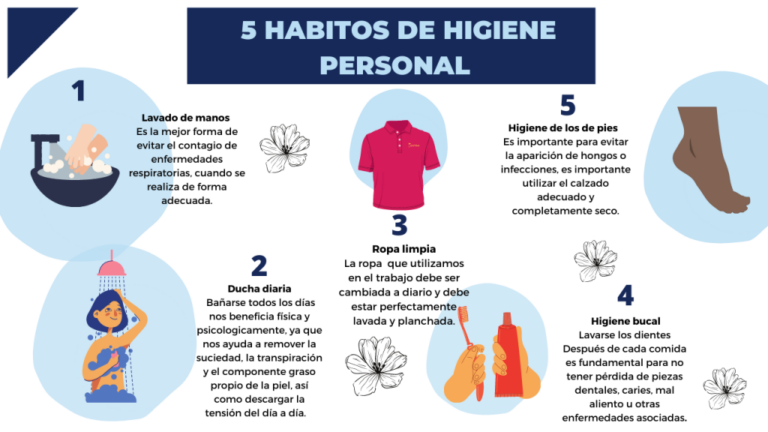Resilience & Mental Health: From Adversity To Growth

Table of Contents
Understanding Resilience: Defining and Identifying its Components
Resilience is more than simply enduring hardship; it's the capacity to adapt, overcome, and even learn from challenges. It's about maintaining a positive outlook and a belief in one's ability to cope, even in the face of significant setbacks. Strong mental strength and emotional resilience are crucial for navigating life's inevitable difficulties. Several key characteristics contribute to a resilient personality:
- Adaptability: Resilient individuals are flexible and readily adjust to changing circumstances. They don't rigidly cling to old ways of doing things but are open to new approaches and strategies.
- Problem-solving skills: They possess effective problem-solving skills, approaching challenges with a proactive and resourceful mindset, rather than feeling overwhelmed.
- Optimism: Maintaining a positive outlook, even in the face of adversity, is a hallmark of resilience. This doesn't mean ignoring problems, but rather focusing on solutions and maintaining hope.
- Self-efficacy: A strong sense of self-efficacy – the belief in one's ability to succeed – is essential. Resilient individuals trust their capacity to cope with challenges and overcome obstacles.
- Social support: Strong social connections provide a crucial safety net. Resilient individuals cultivate and maintain supportive relationships with family, friends, and community members.
These components work together to build a robust foundation for mental well-being, fostering emotional resilience and providing coping mechanisms for navigating life's inevitable stressors. Developing these characteristics is key to strengthening your mental strength and overall well-being.
Building Resilience: Practical Strategies for Enhanced Mental Well-being
Building resilience is an ongoing process, requiring conscious effort and commitment. Here are some practical strategies:
Cultivating Positive Mindset
Positive psychology emphasizes the power of positive thinking and self-compassion. Mindfulness techniques, such as meditation and deep breathing exercises, can help center you and reduce stress. Gratitude journaling, where you reflect on things you're thankful for, shifts your focus to the positive aspects of your life. Cognitive reframing, a technique used in CBT, involves identifying and challenging negative thought patterns and replacing them with more realistic and positive ones. These positive psychology approaches help cultivate emotional resilience.
Strengthening Social Connections
Human beings are social creatures, and strong social support networks are vital for resilience. Nurture your relationships with family and friends. Join clubs or groups based on your interests to build new connections. Don't hesitate to reach out to loved ones when you need support. Engaging with a community support group, especially if dealing with specific challenges, can offer a profound sense of belonging and shared experience. Your social support network is a cornerstone of resilience.
Developing Healthy Lifestyle Habits
Physical health is intrinsically linked to mental well-being. Regular exercise releases endorphins, which have mood-boosting effects. A balanced diet provides the nutrients your body and mind need to function optimally. Sufficient sleep is crucial for both physical and mental restoration. Prioritizing these healthy lifestyle habits is a powerful way to boost resilience and reduce stress, thereby strengthening your coping mechanisms and overall mental strength.
Overcoming Adversity: Using Resilience to Navigate Challenges
Life inevitably presents challenges. The key to building resilience lies in how you respond to these difficulties.
Identifying and Accepting Challenges
The first step in overcoming adversity is acknowledging and accepting the challenges you face. Self-reflection can help you identify personal triggers and stressors. Avoid denial or avoidance; a realistic assessment of the situation is crucial for developing effective coping strategies. This honest self-assessment is vital for managing stress effectively and for emotional regulation.
Developing Coping Strategies
Resilience involves developing a toolkit of coping strategies. These could include deep breathing exercises, progressive muscle relaxation, or techniques from cognitive behavioral therapy (CBT). Learning to manage your stress levels through proven stress reduction techniques is invaluable. For specific challenges like grief, loss, or trauma, seeking professional guidance is often beneficial. Consider learning about and implementing crisis management plans for particularly stressful situations.
Seeking Professional Support
While resilience empowers you to manage many challenges independently, seeking professional help from therapists or counselors is not a sign of weakness but a sign of strength. Therapy can provide valuable tools and support for building resilience and managing mental health concerns. Mental health professionals offer guidance in developing coping strategies and navigating difficult emotional terrain. Many resources are available to help you find mental health professionals in your area.
Conclusion
Resilience is not an innate trait but a skill that can be developed and strengthened. By understanding its components – adaptability, problem-solving, optimism, self-efficacy, and social support – and actively cultivating them through positive mindset practices, strong social connections, and a healthy lifestyle, you can build your resilience toolkit. This toolkit will serve you well in navigating life's inevitable challenges and fostering personal growth. Strengthen your resilience, build your resilience toolkit, and cultivate resilience for a better life. Remember, seeking help is a sign of strength, not weakness. [Link to mental health resource 1] [Link to mental health resource 2]

Featured Posts
-
 Rey Fenix Officially Joins Wwe Smack Down New Ring Name Revealed
May 20, 2025
Rey Fenix Officially Joins Wwe Smack Down New Ring Name Revealed
May 20, 2025 -
 Logitech The Case For A Truly Forever Mouse
May 20, 2025
Logitech The Case For A Truly Forever Mouse
May 20, 2025 -
 Tyler Bate And Pete Dunne Reunite On Wwe Raw
May 20, 2025
Tyler Bate And Pete Dunne Reunite On Wwe Raw
May 20, 2025 -
 Revealed Paulina Gretzkys Hottest And Most Revealing Photos
May 20, 2025
Revealed Paulina Gretzkys Hottest And Most Revealing Photos
May 20, 2025 -
 March 26 2025 Nyt Mini Crossword Answers And Clues
May 20, 2025
March 26 2025 Nyt Mini Crossword Answers And Clues
May 20, 2025
Latest Posts
-
 Descubre El Secreto Sin Secretos Magicos Para Un Envejecimiento Saludable Un Superalimento Superior Al Arandano
May 21, 2025
Descubre El Secreto Sin Secretos Magicos Para Un Envejecimiento Saludable Un Superalimento Superior Al Arandano
May 21, 2025 -
 Combate El Envejecimiento Y Las Enfermedades Cronicas Con Este Superalimento
May 21, 2025
Combate El Envejecimiento Y Las Enfermedades Cronicas Con Este Superalimento
May 21, 2025 -
 Adios Enfermedades Cronicas Este Superalimento Promueve La Salud Y La Longevidad
May 21, 2025
Adios Enfermedades Cronicas Este Superalimento Promueve La Salud Y La Longevidad
May 21, 2025 -
 Mas Alla Del Arandano El Mejor Aliado Para Prevenir Enfermedades Cronicas
May 21, 2025
Mas Alla Del Arandano El Mejor Aliado Para Prevenir Enfermedades Cronicas
May 21, 2025 -
 Mas Alla Del Arandano El Superalimento Clave Para Prevenir Enfermedades Cronicas
May 21, 2025
Mas Alla Del Arandano El Superalimento Clave Para Prevenir Enfermedades Cronicas
May 21, 2025
